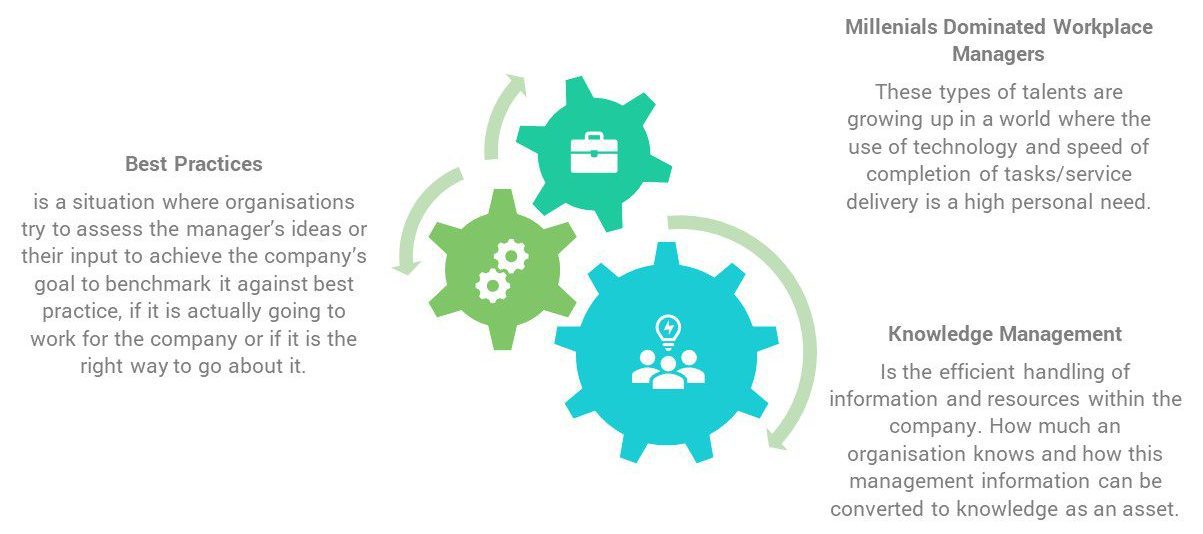Obtaining insightful feedback on a manager’s performance helps managers and organisations understand how to enhance performance. It does consider not only the areas of improvement but also acknowledges distinguished performance.
Managers serve as agents in every organisation, ensuring that the executives achieve the organisational objectives and get their subordinates focused on relevant tasks and targets. Due to work structure, most Executives have fewer interactions with managers compared to the employees who report to these managers and work closely with them. Therefore, a fair assessment of managers, especially regarding character and managerial qualities, can be better done by their subordinates, especially if done anonymously.
As part of their talent management transformation journey in the world, most organisations today seek to develop a culture and mindset that encourages open communication and transparent feedback among employees. This is because increasingly the workforce is being taken over by millennials who will deliver digital transformation. After all, knowledge has been largely democratised, and there is an increasing need for mentoring and reverse mentoring in the workplace.
While downward communication, assessment, and feedback do not pose much of a challenge to both the giver and receiver of the message, it is not always palatable when the table is turned, especially when the assessment or feedback is negative. Despite the intricacies, the need for managers to be assessed and evaluated can be a huge talent management competitive advantage, as it adequately provides a system of checks and balances that ensures that they get better at leading their team and cut back lapses and excesses at work.
As a rule, feedback helps employees, including managers, to identify gaps and possibly plan how to bridge those gaps. Without constant feedback, managers might not grow their leadership potential.
Why Appraise the Managers?
As J.K. Rowling posits, ‘if you want to see the true measure of a man, watch how he treats his inferiors, not his equals.
Appraising Managers serve as;
- a means of coaching
- a means of establishing expectations for the Manager
- a means of establishing expectations for the team
- a mechanism of institutionalising appraisal best practices. Through this, they learn how to appraise others
According to the popular maxim, ‘power corrupts, and absolute power corrupts absolutely. Where the Manager is left unevaluated and unassessed, he becomes ‘the lord and master of the ring’ because of the pedestal on which he has been placed. It becomes easier to create fiefdoms within the organisation, and an individual manager becomes an “unquestionable villain” ruling “his subjects” to deliver his personally developed vision and objectives based on his subjective standards.
The Manager’s role is supervisory and assessing them helps to ensure that they are focused on the right perspectives and goals of the organisation.
To begin, organisations must define and monitor best practices for managers and communicate the same across the organisations to ensure that expectations are clearly defined. It is based on these predefined indicators that an anonymous management appraisal would be designed. It is important to note that best practice changes over time. Therefore, organisations must consistently monitor the external and internal business environment.
Today’s workforce continues to evolve. The rank and file are increasingly being filled with millennials and tech-savvy talents in business environments where digital skills are becoming a “must-have”. These types of talents are growing up in a world where the use of technology and speed of completion of tasks/service delivery is a high personal need. Hence, organisations need to consider the employment of advanced approaches in assessing and evaluating managers by using the effectiveness of technologies as a tool of engagement. Remote communication tools, new generation intranet platforms, all-in-one teams, talent performance management, and personalised learning digital technologies will become increasingly important for companies that want to be high performing in the digital age, where the workplace is constantly changing, and employees’ expectations continue to rise.
The Manager’s role in all its glory is not void of mistakes and imperfections; hence where such mistakes are left unchecked, they can quickly blossom into a cancerous cell that multiplies itself in various forms in all parts of the corporation and may eventually lead to a total crash in the company’s system.
Written by:

Chidera Onyeanusi
Analyst

